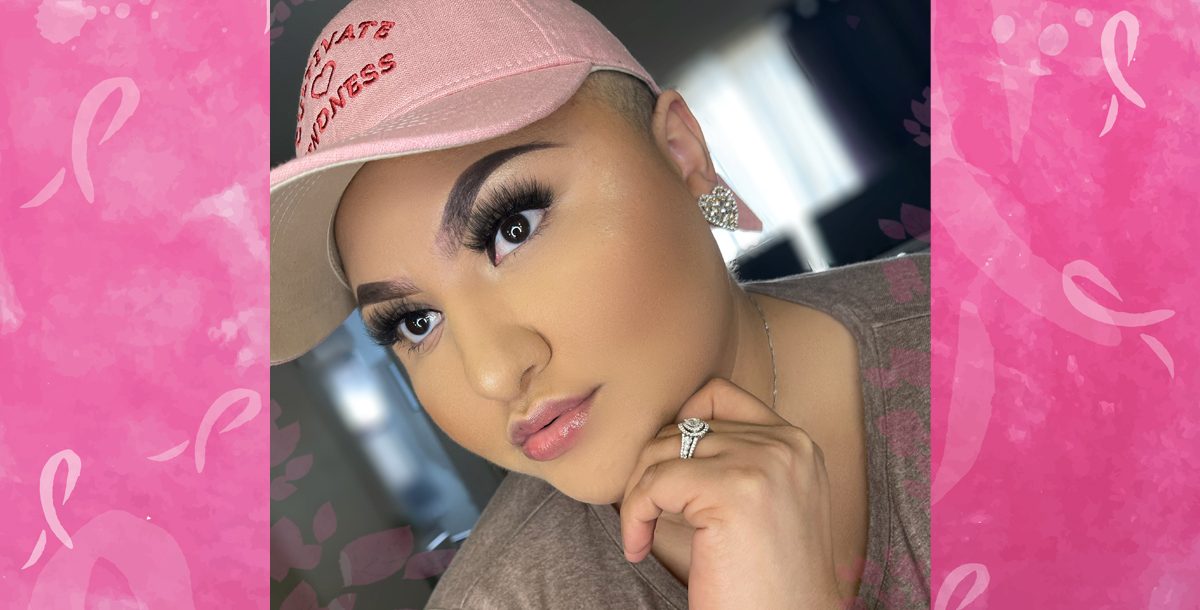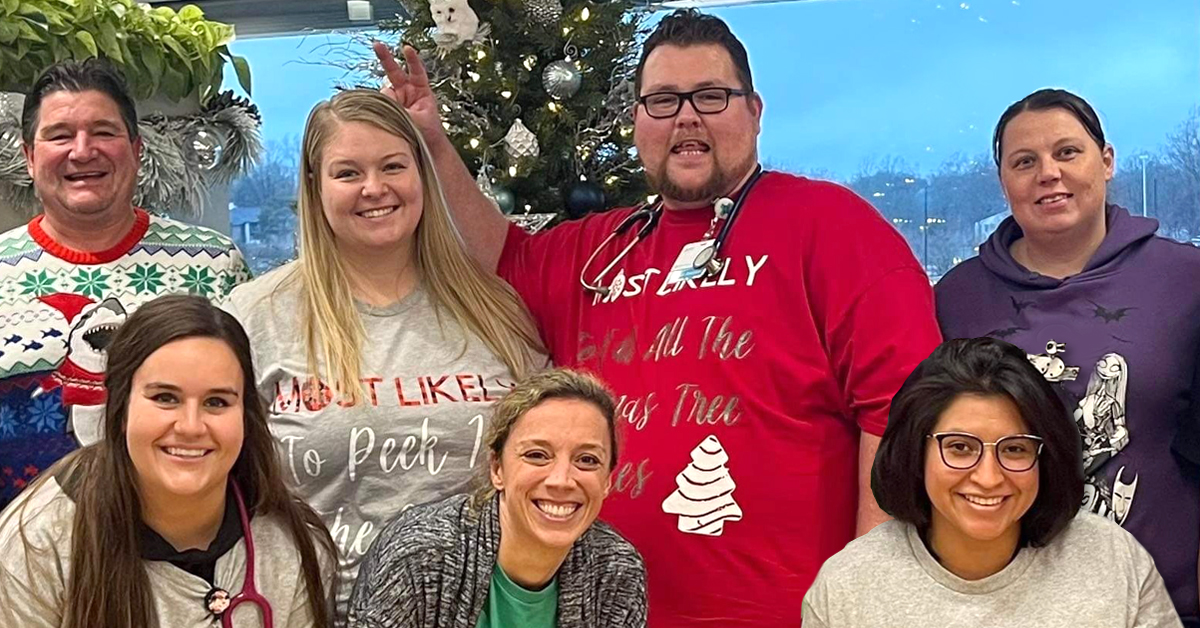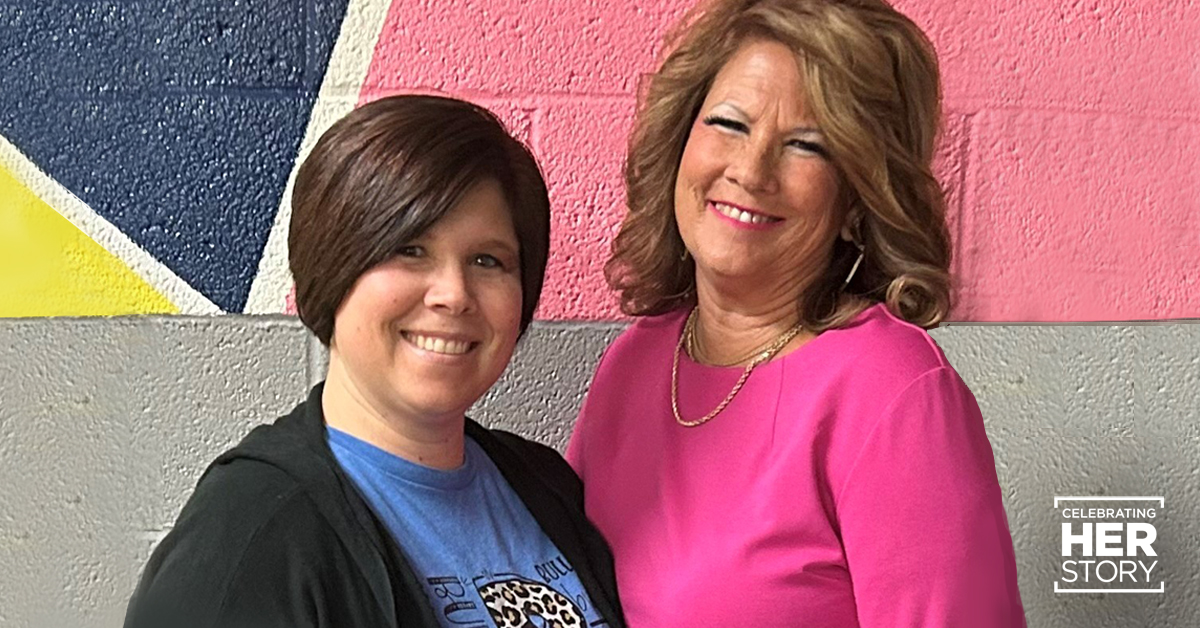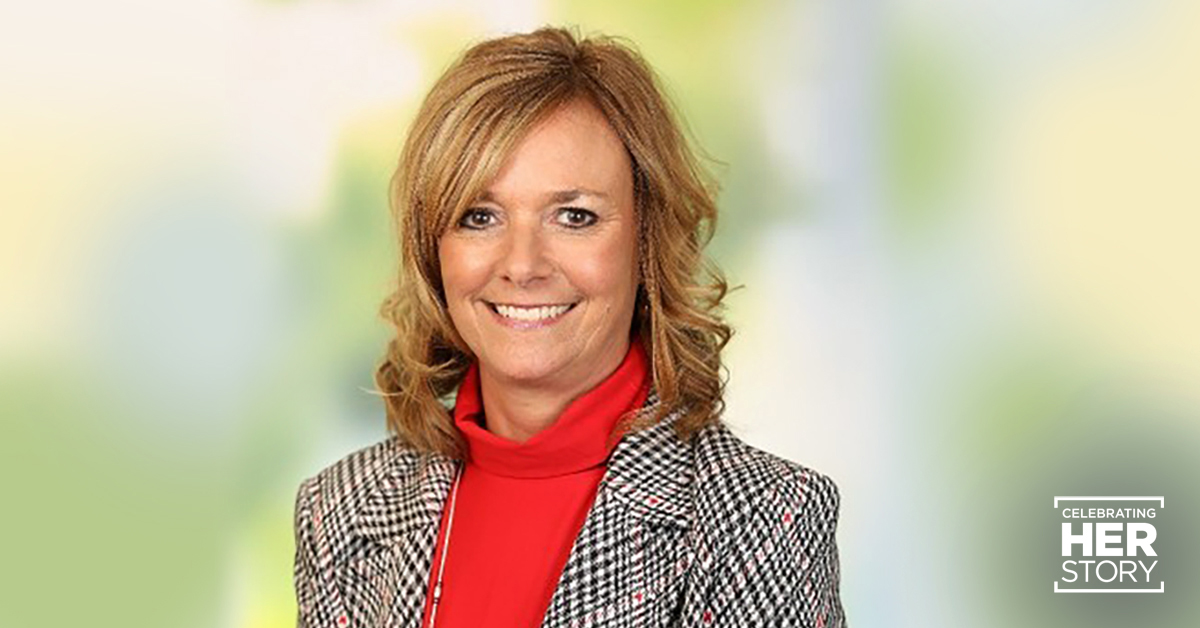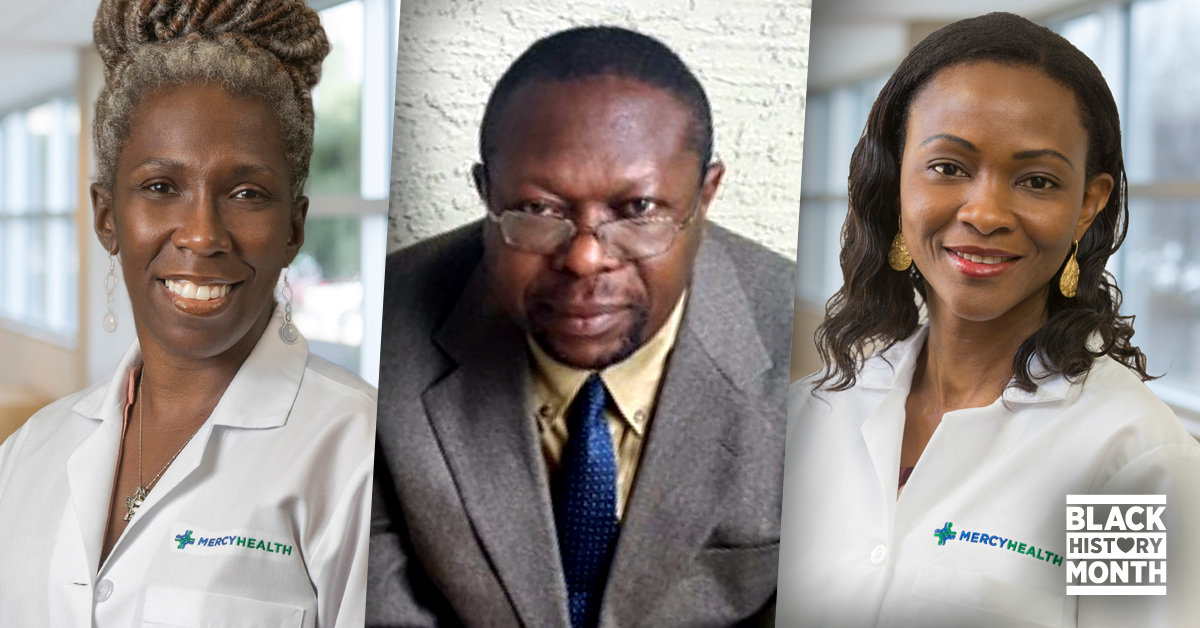Would you like to read Cynthia’s story in Spanish? It is available below.
In early 2020, when Cynthia Avalos was 27 years old, she felt something unusual in her left breast.
“At first, there was no lump. It hurt in a little area. I thought maybe I hit myself somewhere,” she recalls. “Around March, it started growing. I didn’t have a primary care doctor, but I had an appointment with my gynecologist in May. I had just turned 28 and by that time, a bump was forming.”
When Cynthia noted the painful bump during the visit, her longtime gynecologist told her it was hormonal in nature and that she shouldn’t worry about it.
“I thought, ‘OK, there’s nothing wrong,’ and I went about my business,” Cynthia shares. “By July, the bump was the size of a grape. If I pushed my shoulders back, you would have been able to see it.”
Cynthia tried to make an appointment with a primary care provider, but the pandemic delayed new patient appointments. There wasn’t someone who could see her until September and that was for a virtual visit.
“Then I got a UTI, and I made an appointment at my gynecology practice,” she says. “I saw a different gynecologist this time and she sent me for breast ultrasound. By this time, it was the beginning of August. You know when you have that gut feeling? The ultrasound technician said, ‘I need a second opinion,’ and brought the doctor who read the images back.”
They performed a mammogram the same day and scheduled Cynthia for a biopsy based on the results. The doctor called her on Sept. 4, 2020, with the results.
“I was driving with my husband in the car,” Cynthia remembers. “They asked me to call them back when I wasn’t driving. It was a Friday. I didn’t want to call her back. I dropped off my older son, Angel, at his activity. Our little one was sleeping and me and my husband cried before we had the answer.”
She learned shortly afterward that she’d been diagnosed at stage two with an aggressive form of cancer called HER2-positive. The American Cancer Society notes that “HER2 is a protein that helps breast cancer cells grow quickly. Breast cancer cells with higher than normal levels of HER2 are called HER2-positive. These cancers tend to grow and spread faster than breast cancers that are HER2-negative.”
Cynthia’s cancer was also ER- and PR-positive, meaning that the cancer cells grow in response to estrogen (ER) and progesterone (PR), as well as the HER2 growth-promoting protein.
Cynthia soon met with her oncologist at OHC (Oncology Hematology Care) as well as her surgical breast oncologist, Jacquelyn Palmer, MD.
“I trusted her almost immediately,” Cynthia says of Dr. Palmer “I felt like she knew what she was doing. She was shocked that I was so young, and she made me feel better, telling me that because I’m younger, I can fight this. We talked about the options of having a double mastectomy or having the tumor out. I decided on the bilateral mastectomy.”
Cynthia completed six rounds of chemotherapy before having her surgery on April 13, 2021. Although she was annoyed at first that her mom posted on social media everything about her diagnosis, treatment and surgery, Cynthia soon came to see the good that came from it.
Cynthia is a makeup artist and her mother runs Quinceañera Banquet Hall in Springdale.Both are very well known in Cincinnati’s Latino community.
“Word gets around, you know? I had a lot of women reach out, asking ‘How did it start?’ and ‘What did you feel?’” Cynthia shares. “I feel that for a lot of women, it’s not a priority to be checked or perform a self-exam. They may be embarrassed, especially in the Hispanic community. I’ve had people tell me, ‘I’m shy about going to get a mammogram. It hurts. I don’t know where to go.’ I tell them, especially given my age, ‘cancer doesn’t care how old you are, how healthy you are or if you exercise or not.’”
On April 26, 2021, Dr. Palmer let Cynthia know that following surgery and biopsies of both her breasts and lymph nodes, she was cancer-free.
She underwent another six rounds of treatment with Herceptin, a targeted anti-cancer drug, completing the course in February of 2022. Now, Cynthia sees Dr. Palmer every six months and has monthly shot at OHC to suppress her ovaries, something that has put her in early, irreversible, menopause. She also has a primary care provider now and meets with a psychologist who is part of the practice to help her come to terms with her experience.
With her youngest now in school, Cynthia has more time to think and she’s focused on what she can do to help women with breast cancer, especially in the Hispanic community.
First, she encourages everyone to have a primary care provider and push back for answers.
“I think I knew it wasn’t fine. What if I wouldn’t have gone back for that UTI? And don’t take no for an answer. No one can tell you what you feel. It’s always good to get a second opinion.”
Second, Cynthia wants women to know it’s OK to talk about their breast cancer.
“I felt like nobody would understand what I was going through. I wanted to talk to somebody else and reached out to the Pink Ribbon Girls. They added me to these support groups on Facebook, where I found a friend with the same diagnosis, going through same treatment as me. It felt good to talk to someone else and not hold it in,” Cynthia shares, who continued working as a makeup artist throughout her treatment.
“It was an escape. I wasn’t going to let cancer limit me. People reached out to my mom, wanted to talk to me about how to turn this tough experience into something positive. There are women here who don’t speak English and they are not going to get the help they need, even though there’s resources available. I would like to have an organization or a women’s cancer foundation where I can help women of whatever ethnicity. I want to focus on women who think there’s no help for them.”
Learn more about breast cancer as well as the cancer care services we offer at Mercy Health.
Also, a huge thank you to Cynthia for translating her piece into Spanish so her story can reach more people! Read it below.
Paciente con cáncer de mama quiere usar su experiencia para ayudar a otros en su comunidad
A principios de 2020, cuando Cynthia Ávalos tenía 27 años, sintió algo raro en el seno izquierdo.
“Al principio, no había ningún bulto. Dolía en un área pequeña. Pensé que tal vez me había golpeado en alguna parte,” ella recuerda. “Alrededor de Marzo, comenzó a crecer. No tenía un médico de cabecera, pero tenía una cita con mi ginecóloga en Mayo. Acababa de cumplir 28 años y, en ese momento, se estaba formando un bulto.”
Cuando Cynthia notó el bulto doloroso durante la visita, su ginecóloga le dijo que era de naturaleza hormonal y que no debería preocuparse por eso.
“Pensé, ‘Está bien, no pasa nada,’ y seguí con mi vida normal,” dice Cynthia. “Para Julio, el bulto era del tamaño de una uva. Si empujara mis hombros hacia atrás, habrías podido verlo.”
Cynthia trató de programar una cita con un médico de cabecera, pero la pandemia retrasó las citas de nuevos pacientes. No había nadie que pudiera verla hasta Septiembre y eso solo seria para una visita virtual.
“Luego tuve una infección urinaria e hice una cita en mi práctica de ginecología. Esta vez vi a una ginecóloga diferente y me envió a hacerme un ultrasonido mamario. En ese momento, era el comienzo de Agosto. El técnico de ultrasonido dijo: ‘Necesito una segunda opinión’ y trajo al médico que lee las imágenes.”
Le realizaron una mamografía el mismo día y programaron a Cynthia para una biopsia según los resultados. El médico llamó el 4 de septiembre del 2020 con los resultados.
“Estaba manejando con mi esposo en el auto. Me pidieron que me devolviera la llamada cuando no estuviera conduciendo, fue un viernes y yo no quería devolverle la llamada. Dejé a mi hijo mayor Ángel con su entrenador personal. Nuestro pequeño estaba durmiendo y mi esposo y yo lloramos antes de tener la respuesta,” recuerda Cynthia, quien poco después se enteró de que le habían diagnosticado en la etapa 2 una forma agresiva de cáncer llamada HER2 positivo.
La Sociedad Estadounidense del Cáncer señala que “HER2 es una proteína que ayuda a que las células de cáncer de mama crezcan rápidamente. Las células de cáncer de mama con niveles de HER2 más altos de lo normal se denominan HER2 positivas. Estos cánceres tienden a crecer y diseminarse más rápido que los cánceres de mama que son HER2 negativos.”
El cáncer de Cynthia también era hormonal positivo ER y PR, lo que significa que las células cancerosas crecen en respuesta al estrógeno (ER) y la progesterona (PR), así como a la proteína promotora del crecimiento HER2.
Cynthia pronto se reunió con su oncólogo en OHC (Oncology Hematology Care) y su oncóloga cirujana especializada en cáncer de mama, la Doctora de Mercy Health, Jacquelyn Palmer, MD.
“Confié en ella casi de inmediato. Sentí que sabía lo que estaba haciendo,” dice Cynthia de Dr. Palmer. “Estaba sorprendida de que yo fuera tan joven y me hizo sentir mejor, diciéndome que como era más joven, podría luchar contra esto más fácilmente. Hablamos sobre las opciones de tener una mastectomía doble o extirpar el tumor. Me decidí por la mastectomía doble.”
Cynthia recibió seis rondas de quimioterapia antes de someterse a la cirugía el 13 de abril del 2021. Aunque al principio le molestó que su madre quisiera publicar todo sobre el diagnóstico, el tratamiento y la cirugía de Cynthia en redes sociales, pero pronto se dio cuenta de lo bueno que resultó. Cynthia es maquillista profesional; y su madre es organizadora de eventos y es propietaria del Quinceañera Banquet Hall; ambas son muy conocidas en la comunidad Latina de Cincinnati.
“Se corre la voz, ¿sabes? Muchas mujeres se acercaron y nos preguntaron ‘¿Cómo empezó?’ y ‘¿Qué sentiste?,'” dice ella. “Siento que para muchas mujeres no es una prioridad hacerse un chequeo o hacerse un autoexamen. Pueden sentirse avergonzados, especialmente en la comunidad Hispana. Algunas personas me han dicho: ‘Me da vergüenza hacerme una mamografía’. Duele? No sé a dónde ir’. Y les digo, especialmente a mi edad, ‘Al cáncer no le importa la edad que tengas, qué tan saludable estés o si haces ejercicio o no.’”
El 26 de abril de 2021, la Dr. Palmer le informó que después de la cirugía y las biopsias de sus senos y ganglios linfáticos. Cynthia estaba libre de cáncer.
Se sometió a otras seis rondas de tratamiento con Herceptin, un medicamento anticancerígeno específico para el cáncer de mama HER2 positivo, y terminó sus rondas en febrero del 2022. Cynthia consulta a la Dr. Palmer cada seis meses y recibe una inyección mensual de OHC para suprimir los ovarios, algo que la ha puesto en menopausia que es reversible. Ahora tiene un doctor de cabecera y se reúne con un psicólogo que forma parte de la práctica para ayudarla a aceptar su experiencia.
Ahora que su hijo menor está en la escuela, Cynthia tiene más tiempo para pensar y está concentrada en lo que puede hacer para ayudar a las mujeres con cáncer de mama, especialmente en la comunidad Hispana.
Primero, le recomienda a todos tener un doctor de cabecera y buscar respuestas.
“Creo que sabía que algo no estaba bien. ¿Qué hubiera pasado si no hubiera regresado por esa infección urinaria? Y no aceptes un ‘no’ por respuesta. Nadie puede decirte lo que sientes. Siempre es bueno obtener una segunda opinion.”
En segundo lugar, quiere que las mujeres sepan que está bien hablar sobre su cáncer de mama o cualquier tipo de cáncer que tengan.
“Sentí que nadie entendería lo que estaba pasando. Quería hablar con alguien más y contacté a Pink Ribbon Girls. Me agregaron a unos grupos de apoyo en Facebook, donde encontré a una amiga con el mismo diagnóstico, pasando por el mismo tratamiento que yo. Se sintió bien hablar con otra persona y no contenerse,” dice Cynthia, quien continuó trabajando como maquillista profesional durante su tratamiento.
“Fue un escape, No iba a dejar que el cáncer me limitara. La gente se acercó a mi mamá, querían hablar conmigo sobre cómo convertir esta experiencia difícil en algo positive,” dice Cynthia, que mira hacia el futuro.
“Hay mujeres aquí que no hablan inglés y no van a recibir la ayuda que necesitan, aunque hay recursos disponibles. Me gustaría tener una organización o fundación de mujeres contra el cáncer donde pueda ayudar a mujeres de cualquier etnicidad. Quiero enfocarme en las mujeres que piensan que no hay ayuda para ellas.”


